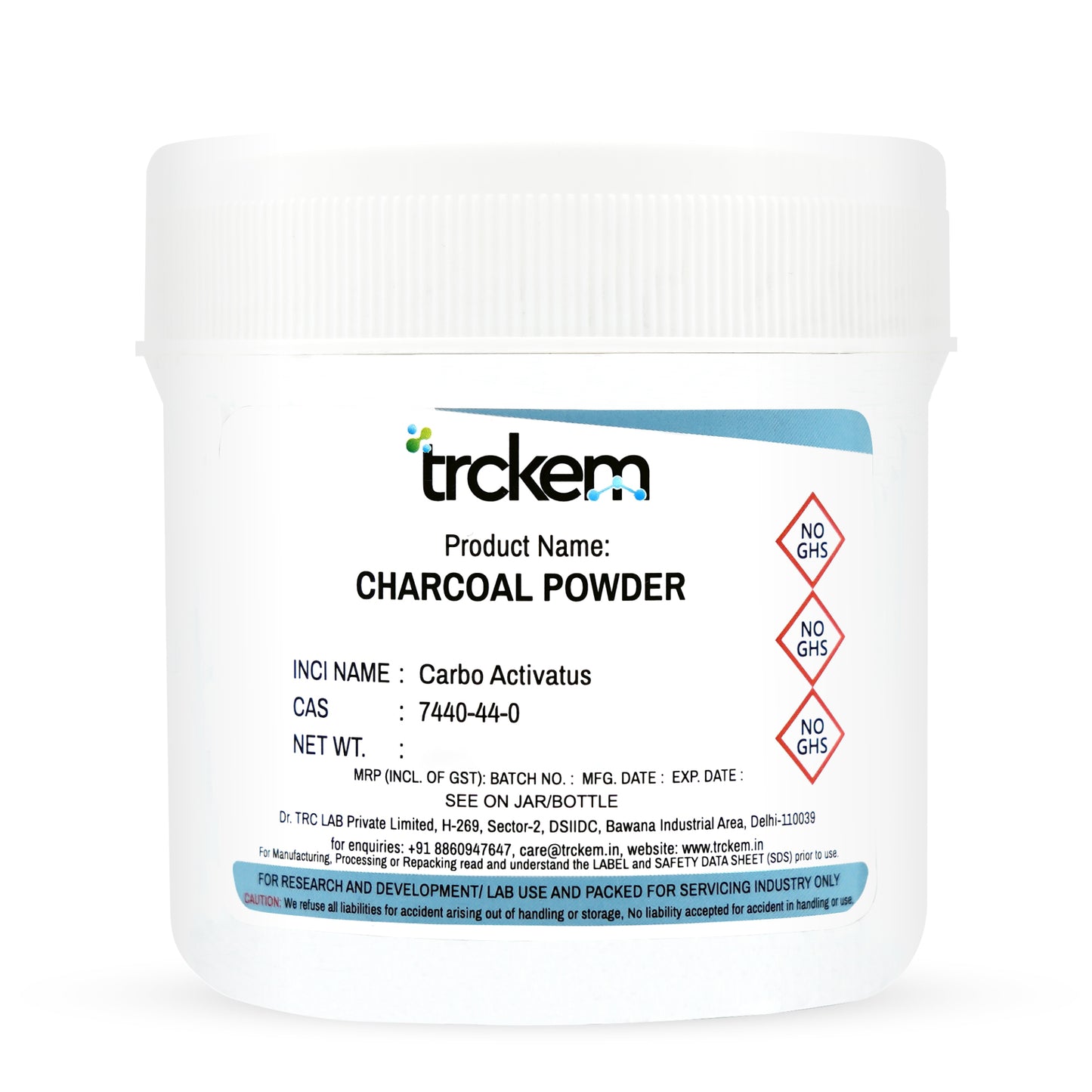
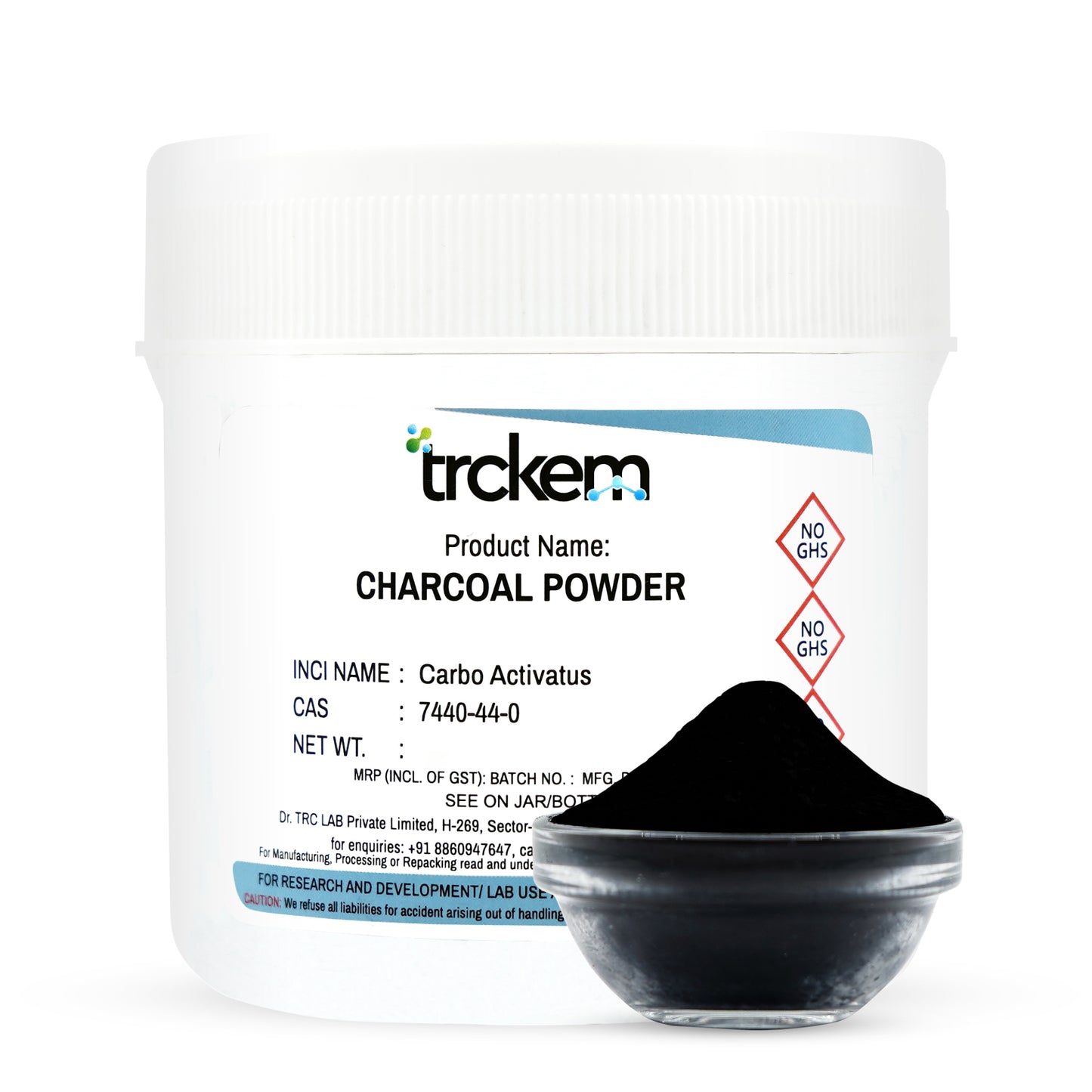
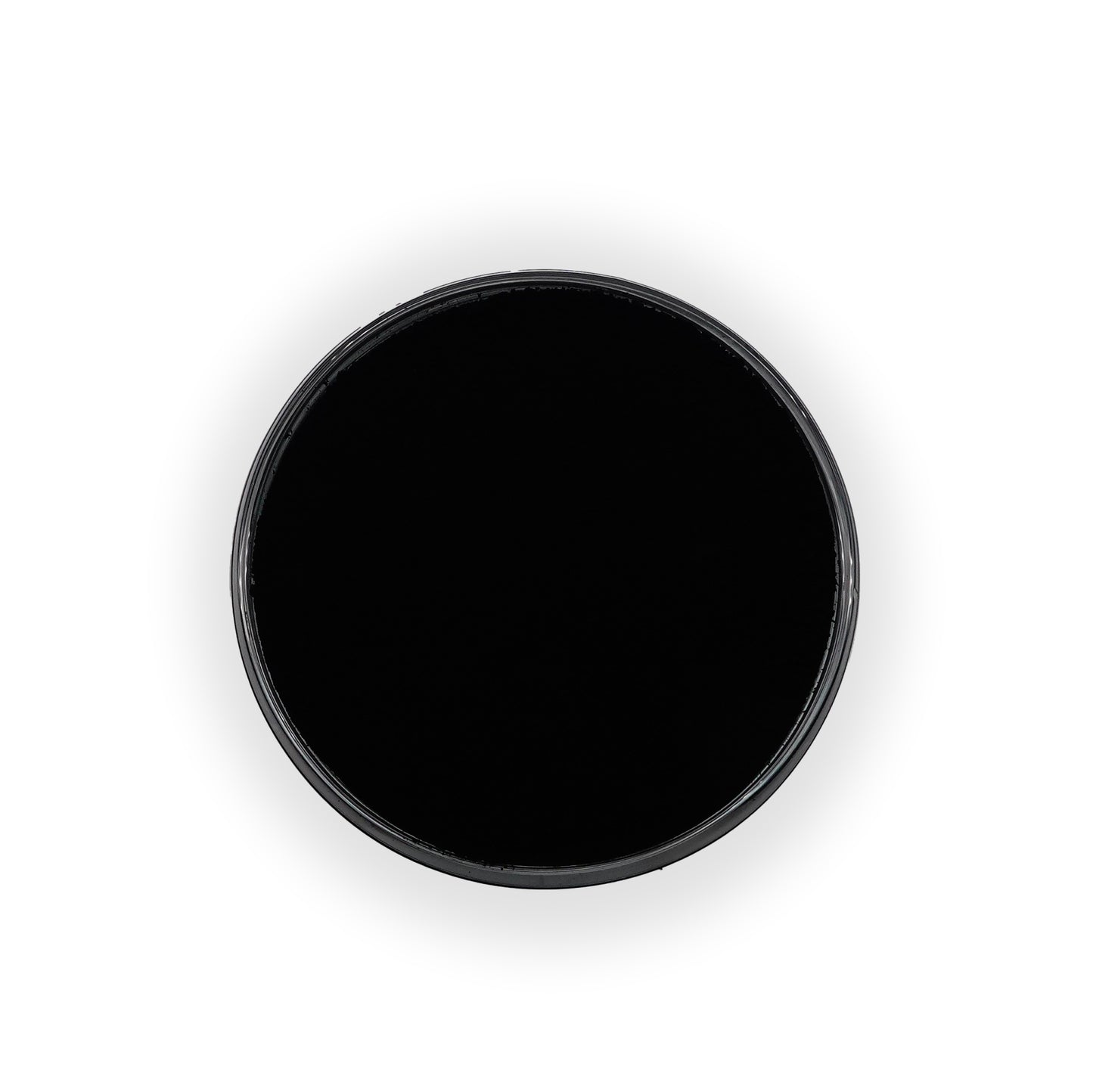
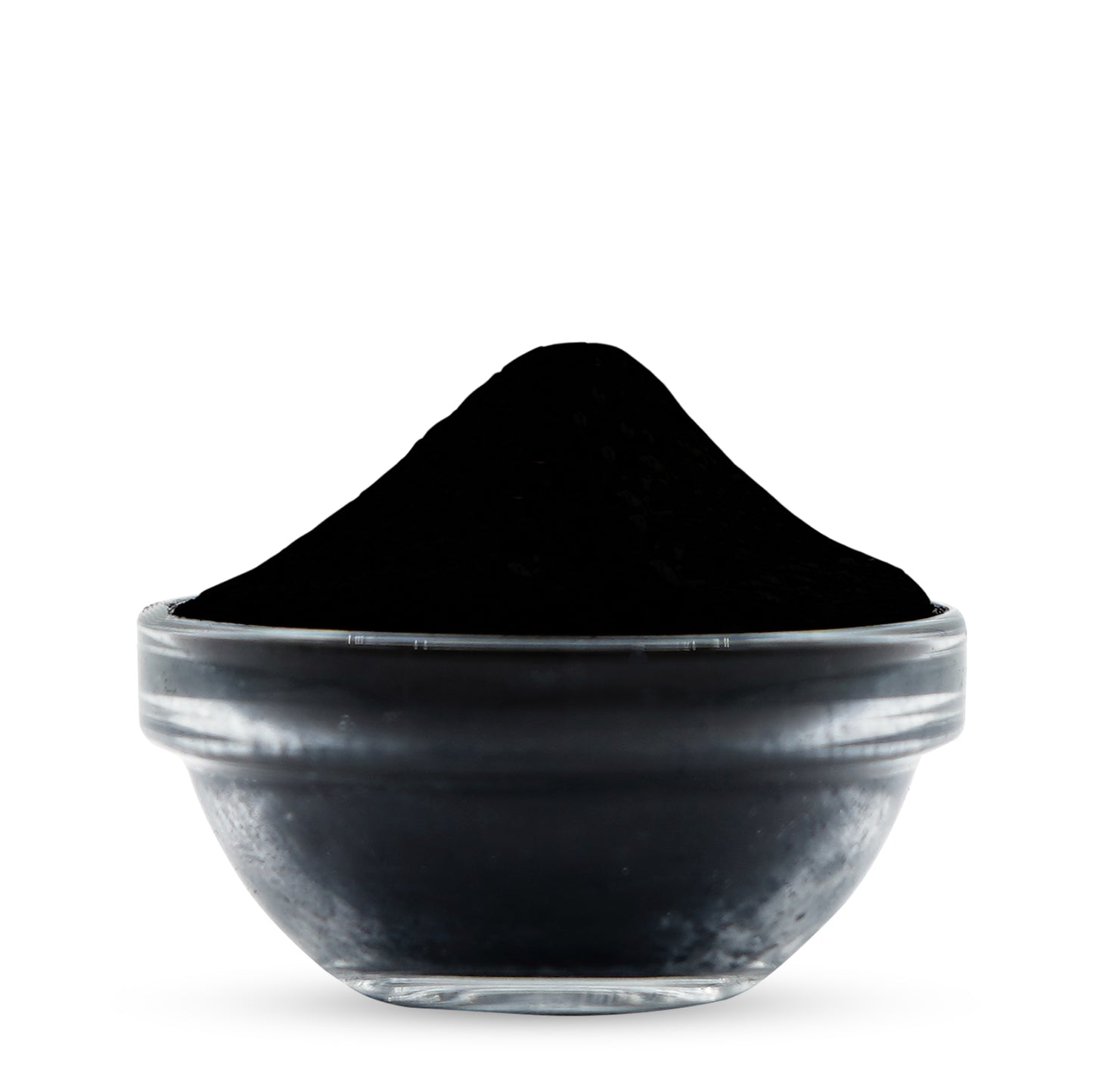
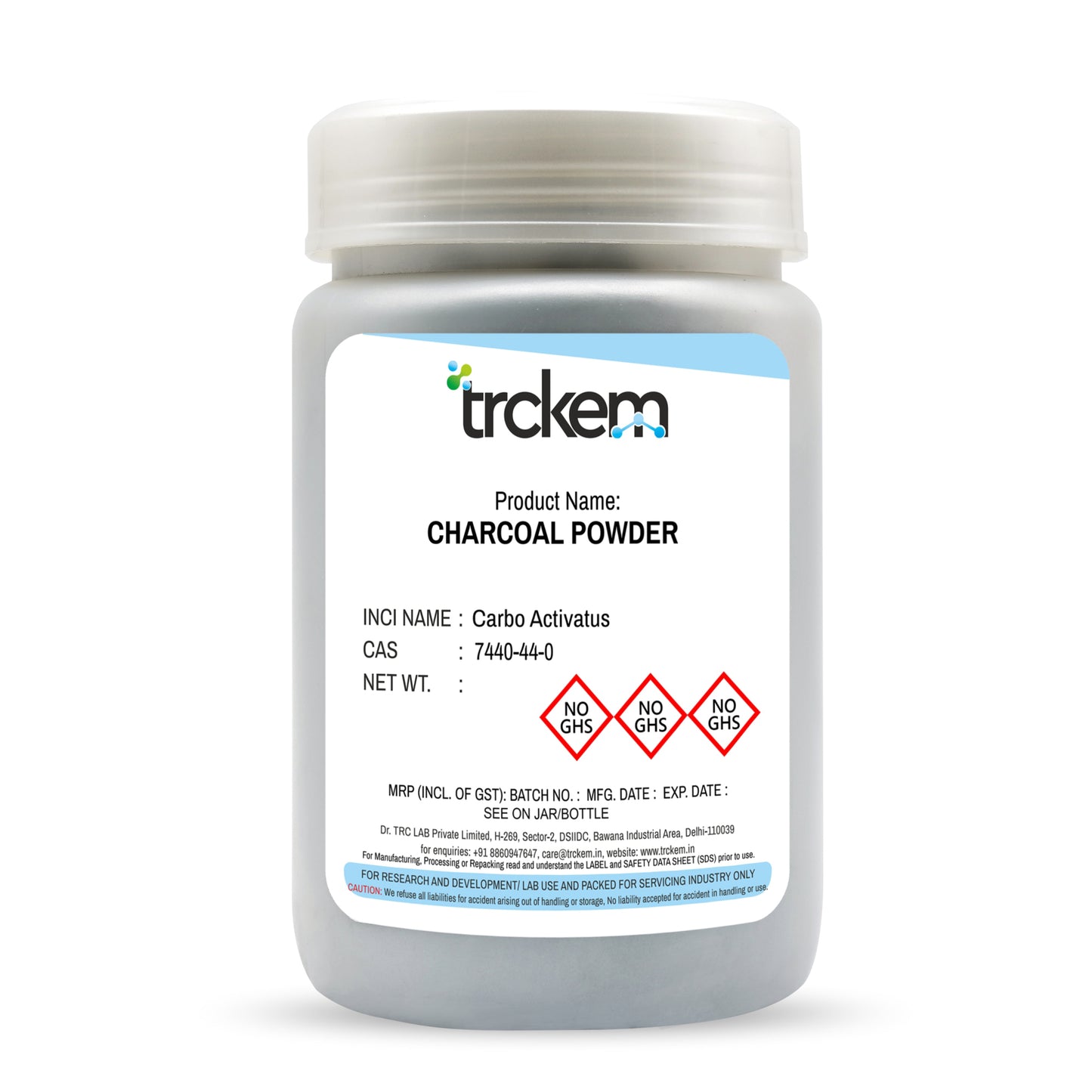
THE STORY OF CHARCOAL POWDER

Activated Charcoal: The Detoxifying Black Mineral for Pure Skin & Scalp
Activated Charcoal Powder is a powerful purifying and detoxifying agent used in skincare, oral care, and haircare formulations. Known for its adsorptive ability to bind dirt, oil, and toxins, it delivers deep cleansing, mattifying, and clarifying effects — ideal for oily, acne-prone, or polluted skin and scalp.

Steam-Activated Carbon from Coconut Shells or Wood
Activated Charcoal is made by carbonizing plant-based materials (coconut shells, bamboo, or hardwood) and then treating them with steam or carbon dioxide to increase surface area and porosity. TRCkem supplies ultra-fine, cosmetic-grade, non-gritty charcoal ideal for masks, cleansers, and oral care — free from heavy metals and impurities.

Detox. Clarify. Purify.
Key benefits in cosmetic & personal-care use:
✅ Deep-cleanses pores and removes impurities
✅ Adsorbs excess sebum, pollution & bacteria
✅ Leaves skin matte, smooth, and refreshed
✅ Ideal for acne-prone, oily, and urban skin
✅ Naturally black pigment enhances visual appeal
Used in: face masks, cleansers, soaps, deodorants, shampoos, toothpaste, scrubs, and detox body products.

Natural, Safe & Effective — Handle with Care in Formulation
• Typical use level: 0.1–5% (varies by application)
• Can be dispersed in water, gels, or anhydrous bases
• Requires gentle mixing to avoid clumping and airborne dust
• Non-toxic, inert, and safe for topical/oral use when cosmetic grade
• May slightly darken emulsions — pair with chelators for color stability
• Store sealed, dry, and away from high humidity to preserve activity
Formulator’s Queries, We Answered
1. What is the CAS number and INCI name of charcoal powder?
The Chemical Abstracts Service (CAS) numbers for charcoal powder are 16291-96-6 and 7440-44-0. The International Nomenclature of Cosmetic Ingredients (INCI) name is Charcoal Powder.
2. What is charcoal powder?
Charcoal powder is a fine, black powder produced by heating organic materials, such as wood, in the absence of oxygen—a process known as pyrolysis. This results in a highly porous substance with significant surface area, enhancing its absorptive capabilities.
3. What functions does charcoal powder serve in personal care products?
In cosmetics and personal care formulations, charcoal powder serves multiple functions:
Absorbent: Effectively absorbs excess oils and impurities from the skin, aiding in deep cleansing.
Abrasive: Provides gentle exfoliation, helping to remove dead skin cells and promote a smoother complexion.
Opacifying Agent: Reduces the transparency of products, giving them a more opaque appearance.
These properties make charcoal powder a valuable ingredient in various formulations.
4. In which personal care products is charcoal powder commonly used?
Charcoal powder is utilized in a variety of personal care products, including:
Facial Masks: To detoxify the skin by drawing out impurities and excess oil.
Cleansers: Incorporated into facial and body cleansers for its deep-cleaning properties.
Toothpastes: Used as a mild abrasive to aid in teeth whitening and oral cleanliness.
Soaps: Added to soaps for its exfoliating and purifying effects.
Its versatility allows for widespread application in products aimed at cleansing and purifying.
5. Is charcoal powder safe for use in personal care products?
Charcoal powder is generally recognized as safe for use in cosmetics and personal care products. According to a safety assessment by the Cosmetic Ingredient Review (CIR) Expert Panel, plant-derived charcoal ingredients, including charcoal powder, are safe in the present practices of use and concentration.
6. Are there any precautions to consider when using products containing charcoal powder?
While charcoal powder is widely used and considered safe, consumers should:
Avoid Inhalation: As with any fine powder, avoid inhaling the product to prevent respiratory discomfort.
Monitor for Skin Sensitivity: Individuals with sensitive skin should perform a patch test before using products containing charcoal powder to ensure no adverse reactions occur.
Follow Product Instructions: Always use products as directed by the manufacturer to achieve the best results and minimize potential risks.
Incorporating charcoal powder into personal care products leverages its natural absorptive and purifying properties, offering consumers effective solutions for cleansing and detoxifying the skin and teeth.







